This module focuses on identifying, diagnosing, and managing animal parasites to promote animal health and productivity. It covers the major groups of parasites—helminths, arthropods, and protozoa—and their associated diseases.
1. Identification of Animal Parasites
Learners study the main classes of parasites:
-
Helminths – including nematodes, cestodes, and trematodes, described by their structure, lifecycle, and mode of infection.
-
Arthropods – such as insects, mites, and ticks, described by their morphology, development, and role as vectors.
-
Protozoa – single-celled parasites classified based on movement (flagella, cilia, pseudopodia) and mode of reproduction.
2. Description of Common Parasitic Diseases
Students learn about major parasitic diseases:
-
Helminthiasis – caused by parasitic worms like roundworms, tapeworms, and flukes.
-
Arthropod-borne diseases – caused or transmitted by ticks, flies, lice, and mites (e.g., anaplasmosis, babesiosis).
-
Protozoosis – caused by protozoan parasites such as Trypanosoma, Eimeria, and Babesia.
3. Diagnosis of Common Parasitic Diseases
The module trains students to:
-
Conduct clinical examinations following proper procedures.
-
Collect and handle samples (blood, feces, skin scrapings, etc.) according to protocols.
-
Examine samples using laboratory techniques (microscopy, flotation, staining).
-
Interpret results accurately based on clinical signs and lab findings.
4. Treatment and Control of Parasitic Diseases
Learners gain practical skills in:
-
Applying effective treatments specific to helminths, arthropods, and protozoa.
-
Monitoring animal health during and after treatment.
-
Implementing biosecurity and preventive measures such as sanitation, vector control, vaccination, and isolation to reduce disease spread.
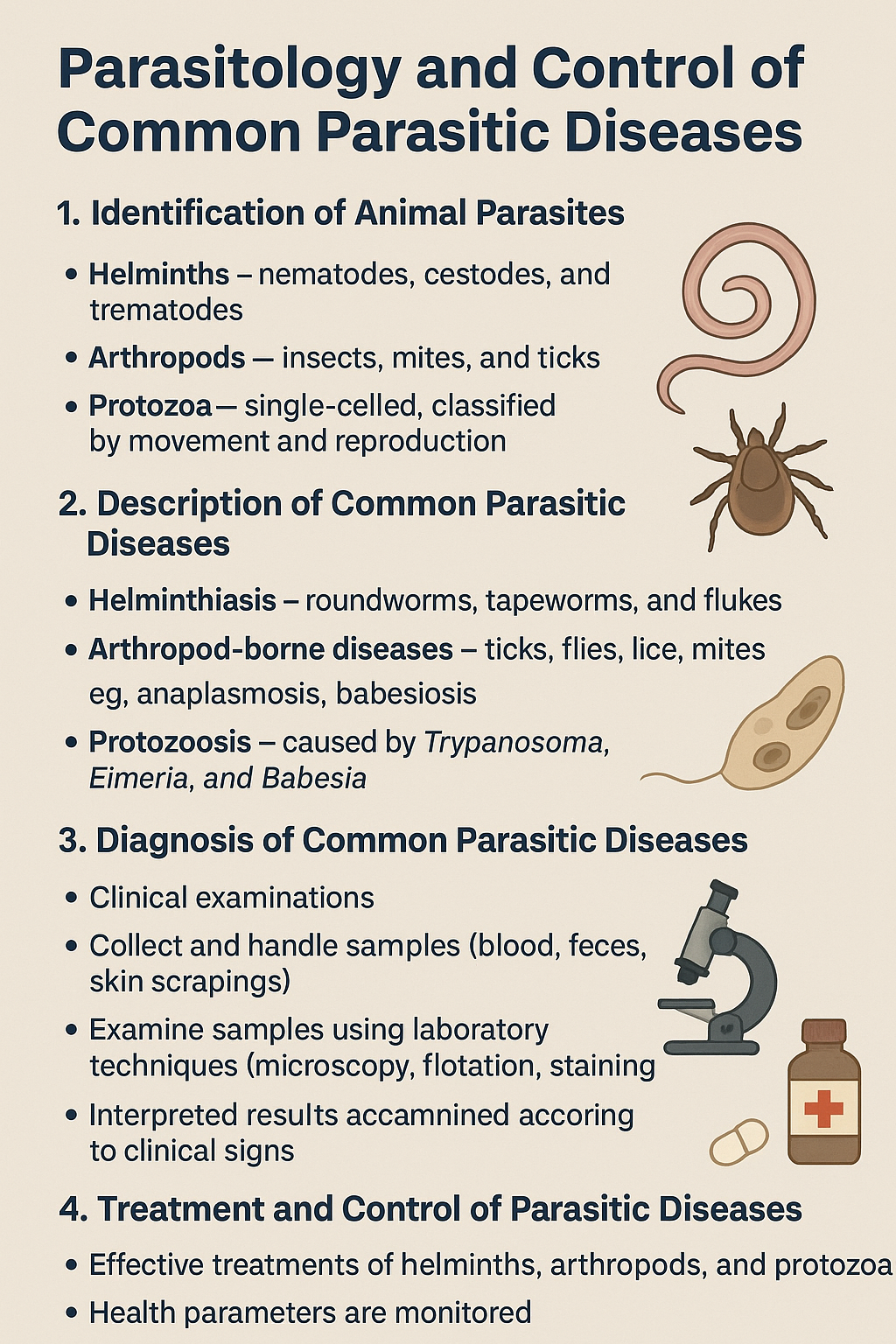
- Teacher: NIYONZIMA Fiston
This module describes the skills, knowledge and attitudes required by a veterinary
nurse in treating and preventing infectious diseases. Any veterinary nurse has to
treat common infectious diseases during his professional work. So, this
competence is very important for the Veterinary nurse training. Upon completion
of this module, the trainee will be able to: identify common infectious diseases,
Perform diagnosis of common infectious diseases, and Perform treatment of
common infectious disease.
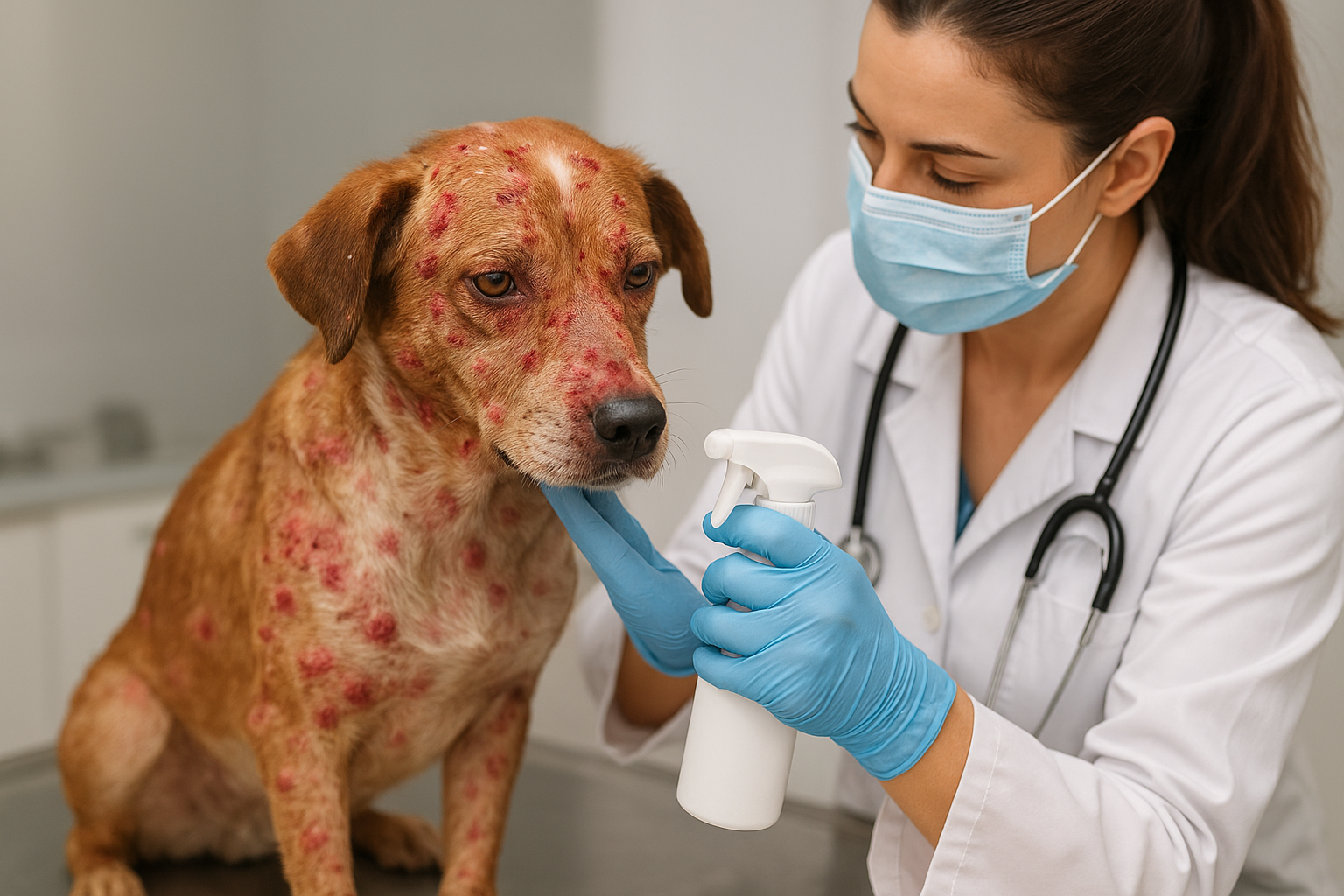
- Teacher: NIYONZIMA Fiston
This module describes the skills, knowledge and attitude required to apply livestock extension techniques.
It is intended to the learners pursuing TVET Certificate IV in Animal health. Upon completion of this module the learner will be able to assess Farmers' Needs, develop Extension plans, deliver extension services, monitor and evaluate Impact under minimum supervision.
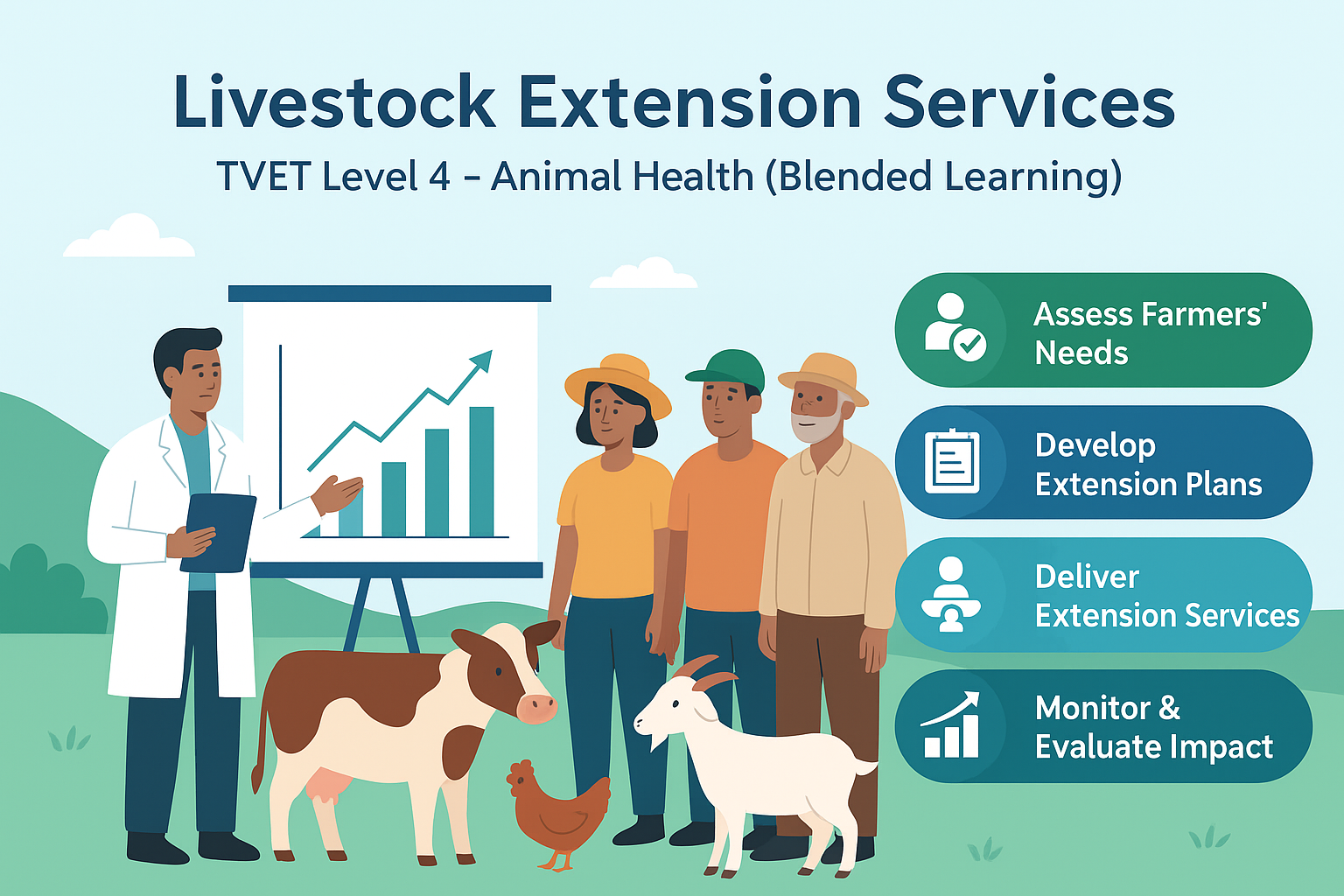
- Teacher: Rene Heritier UWURUKUNDO
This module describes the skills, knowledge and attitudes required for learners to
be competent in Rabbit farming. At the end of this module, participants will be
able to determine Construct rabbit hutches, management of production, Control
diseases and predators and record keeping
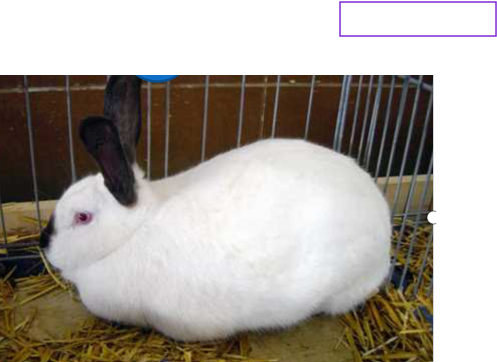
- Teacher: Illuminee BARAKAGWIRA
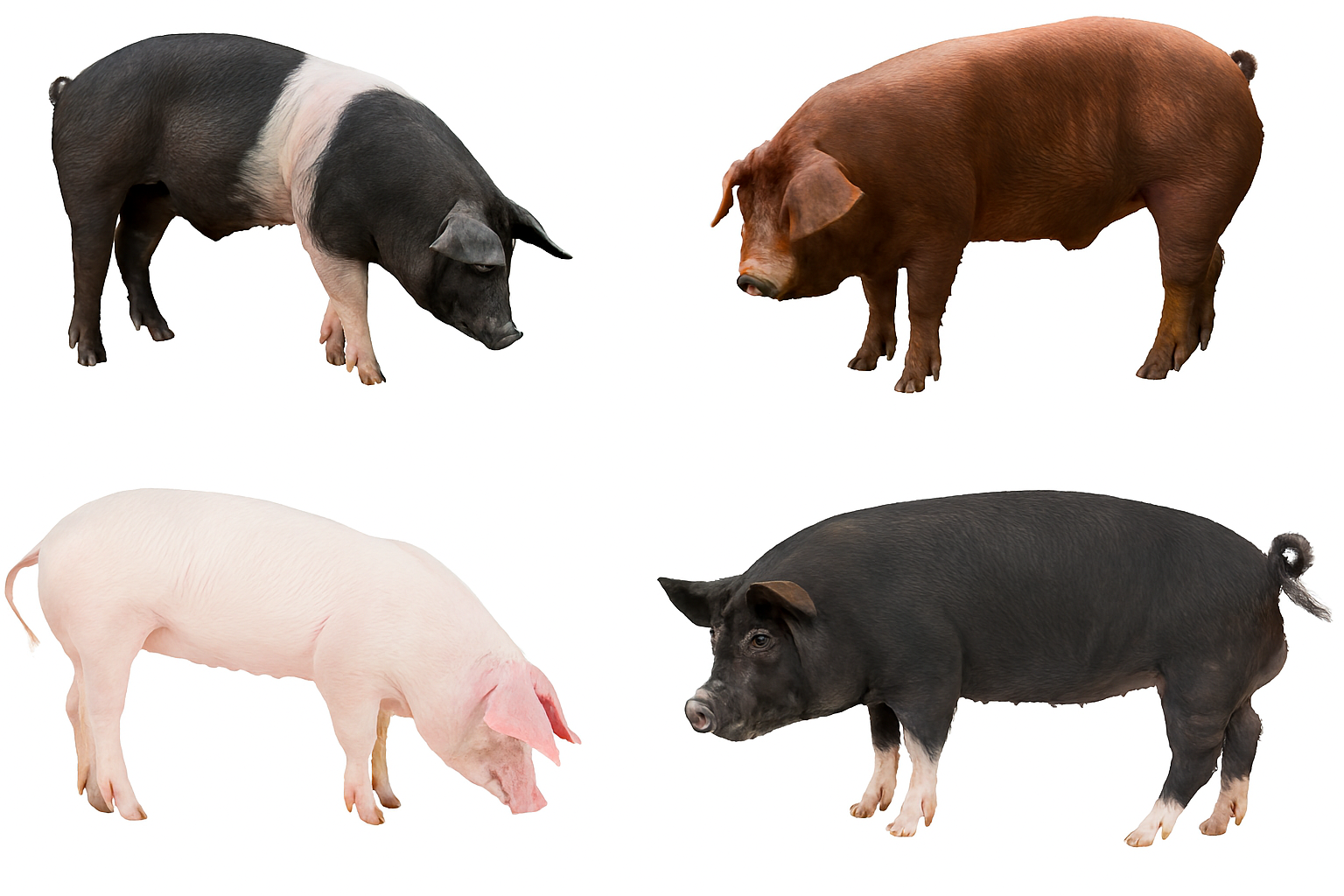
- Teacher: Olivier MUHOZA
This module describes the skills, knowledge and attitudes required to treat intoxications, nutritional and metabolic disorders.
At the end of this module, you will be able to identify, diagnose and treat intoxications, nutritional and metabolic disorders during the professional work.
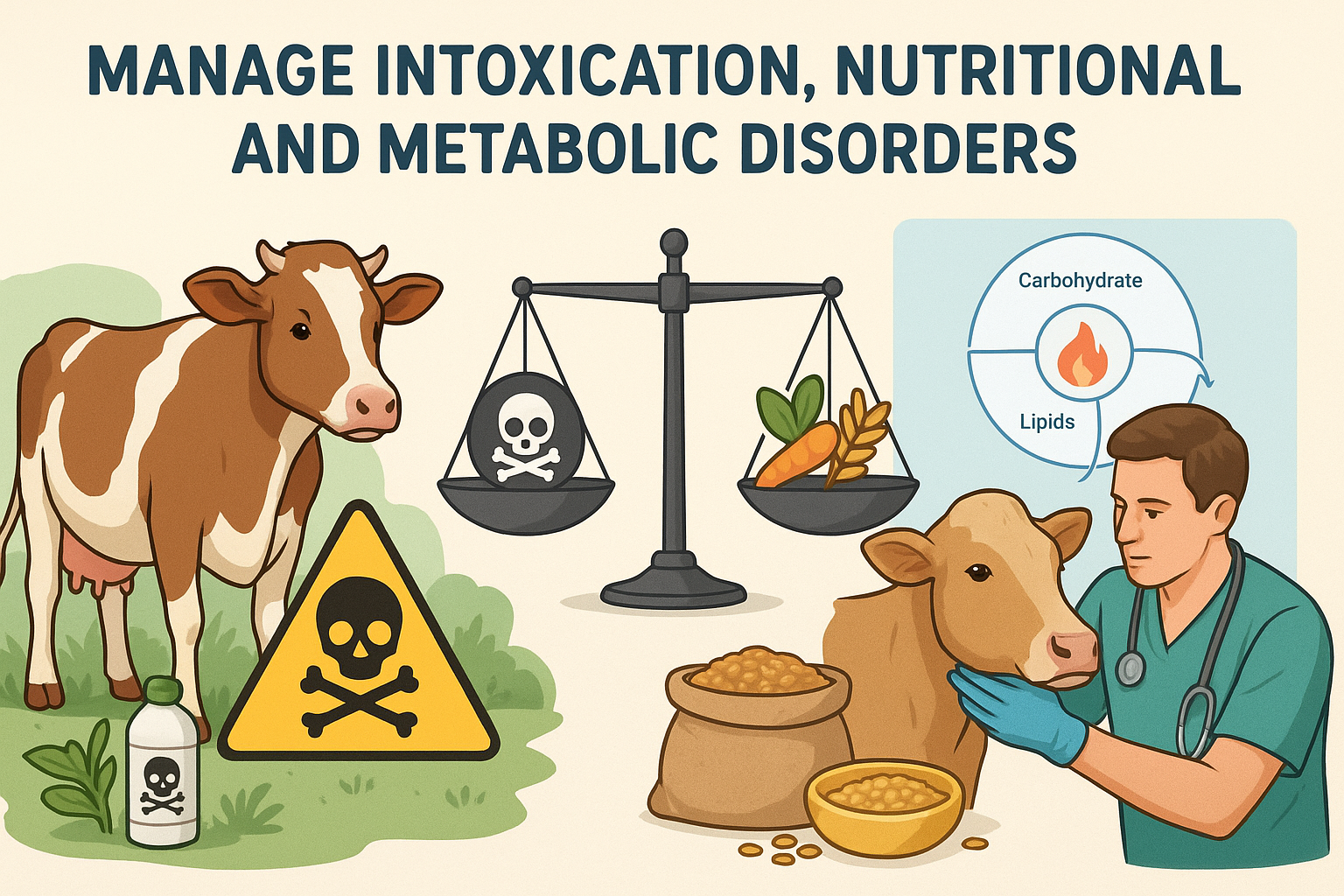
- Teacher: Rene Heritier UWURUKUNDO
This course will describe the skills and attitudes that will help the learners from level four animal health to acquire knowledge and attitude on milking equipment hygiene , milk cows , monitoring milk quality and quantity , perform minor maintenance of troubleshooting issues and finally communicate effectively with the milking parlor team.
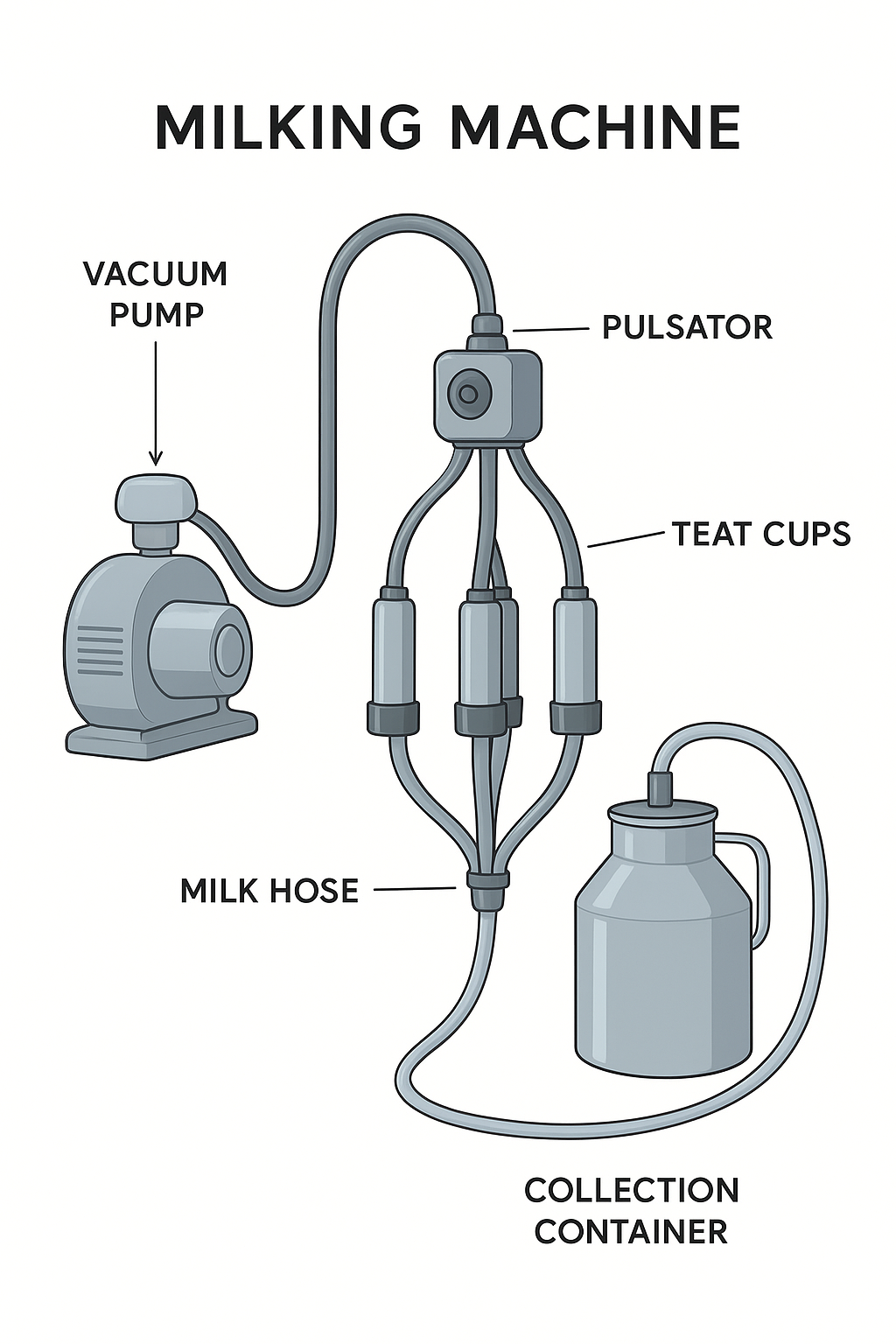
- Teacher: Olivier MUHOZA
- Teacher: INGABIRE Veronique
This module describes the skills, knowledge and attitudes required to construct poultry house, apply poultry rearing techniques and control poultry diseases.
At the end of this module, you will be able to select materials, equipment, breeds and manage different poultry productions

- Teacher: Rene Heritier UWURUKUNDO
